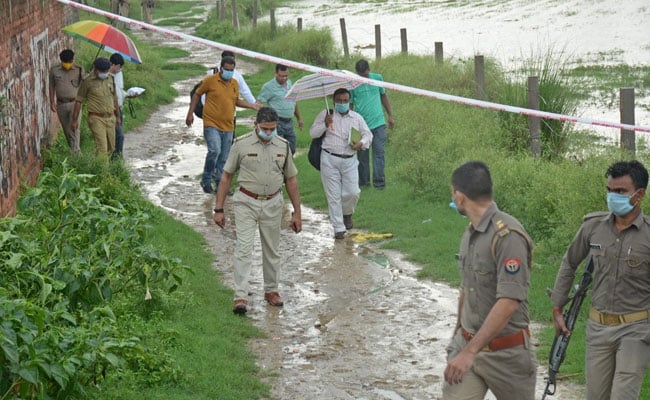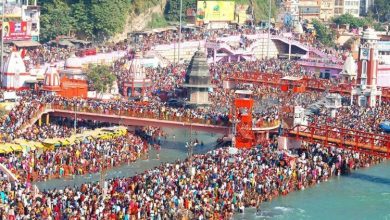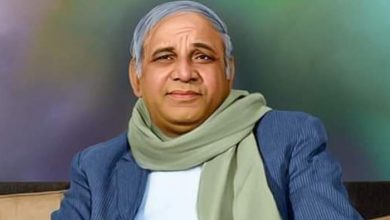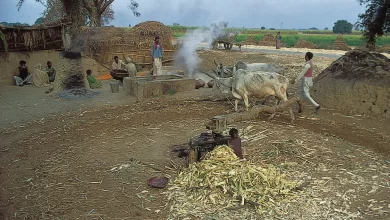Police Reforms : Investigation and prosecution must be specialised and separated
Police reforms agenda . Investigation and prosecution must be specialised and separated from other duties right from Police Station to district level , says Sushil Chandra Tripathi former secretary to Government of India in this article .
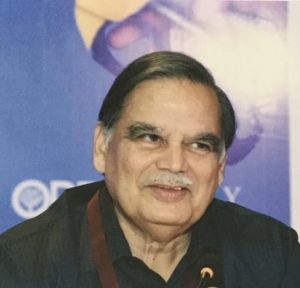
Under the Constitution, law and order including police is a State subject.Most States still retain the features of Indian Police Act 1861.Common Cause (CC) in collaboration with Centre for Developing Societies (CDS) and taking inputs from National Crime Record Bureau (NCRB) and Bureau of Police Research and Development( BPRD),has published a recent study “Status of Policing in India Report 2018, A Study of Performance and Perceptions”.
Common Cause study has collected data relating to 43 variables collected over five years from 2012 to 2016 and categorised in to six different themes, namely,(1) Crime rates,(2) Disposal of cases by Police and Courts,(3) Police Diversity,(4) Police Infrastructure,(5) Prison Data, and (6) Disposal of cases of crime against SC/ST,Women and Children.Some of the results are surprising but others strengthen common perception.
Please also see :
https://www.prsindia.org/policy/discussion-papers/police-reforms-india
Punjab, Himachal, Jharkhand and Tamilnadu have least crime rates and MP, Rajasthan, Kerala and Delhi, the most.In percentage of violent crimes, the table changes.In disposal of cases by Police( charge sheet filed),and by Courts ( conviction and other disposal),the index shows Uttarakhand, Chattisgarh, UP and Kerala to be good performers with Bihar, West Bengal,Delhi and Assam worst performers.The police diversity index is best in Odisha, Maharashtra, Himachal and Tamilnadu but worst in Assam, Haryana, West Bengal and UP.
Police Infrastructures
Police Infrastructures is best in Delhi, Nagaland, Rajasthan and Punjab but worst in West Bengal, Gujarat, UP and Andhra.On overall basis, more than 50% of the prisoners are under trial and Himachal, MP,Kerala and Chattisgarh are the worst performers in prison data index.In disposal of cases of crime against SC/ST,Women and Children, Andhra, Assam and Bihar are the worst whereas, Uttarakhand, West Bengal and Delhi are the best.
Analysis of recorded data may not give the best picture as putting everything in to figures is not easily possible.Not capturing many unreported/ under reported crimes and reducing all crime to digits can potentially lead to somewhat distorted picture.But Common Cause study does give a countrywide picture and reflects the actual position in respect of physical features like infrastructure etc.In case of other issues, it creates a base for further study and analysis.
There are interesting observations about who all mostly contacted police and whom did police mostly contact. Not surprising that mostly well to do persons contacted police but police contacting poor was twice as much as the rich.Police is even now a feared entity and the perception about is still of discriminating on caste and gender with some findings on religion based discrimination.Very few states have adequate representation in the force of SC/ST, women or minorities. Interestingly, the underutilisation of funds is very high in Bihar, UP and Assam, showing poor administration. So the police force or our perceptions or both are not changing.
I was district magistrate of Almora about 44years ago and worked as Inspector General for Revenue Police as the Patwari functioned as Station House Officer(SHO) of a Police Station(PS).We wanted to expand the coverage of regular police then confined only to three PS. But people were apprehensive and did not want it.Some went to the extent of saying that police in these peaceful areas would bring crime if not criminals. Central and State Governments have looked at Police Reforms many times with several Commissions.Dharamvir Commission set up by Janata Government gave a comprehensive report but the Congress Government that followed was lukewarm towards it.
Supreme Court directions
Sri Prakash Singh filed a PIL in Supreme Court(SC) that gave several directions and keeps monitoring from time to time .But the States have not implemented in the spirit of police reforms and mostly given very lukewarm response.
In a recent follow up direction the SC asked to involve the Union Public Service Commission(UPSC) in the selection of State Director Generals of Police. But the malaise appears deep with over politicisation where junior officers influence the posting of superiors and lack of professionalism pervading the organisation.
I am no expert on police matters but I have the benefit of working as Magistrate dealing with all kinds of criminal cases under the old CrPC.I also had the opportunity of working at the apex supervisory level for revenue police and then as district magistrate of an extremely sensitive district of Aligarh. At State level I did not work directly in home department but was oversaw the working from close quarters during the President Rule in UP, working as Principal Secretary and Adviser to Governor. Most important unit in police establishment is the police station (PS) and SHO is the most important functionary.Police stations must be modernised, instead of head mohair we should have computer operators writing First Information Reports(FIR) and the General Diary(GD). All Sub Inspectors, Inspectors and SHO must be graduates with minimum one year entry level training in crime prevention, detection and prosecution besides use of fire arms.
In Service training
There should be compulsory 3 to 6 months, in service training in above subjects every five years.Every police station must have a specialised cell of trained inspectors for crime detection and investigation.The constables and head constable would only do beat and watchword or law and order duties and assist superiors in other activities.It is worth mentioning that every PS should have at least one woman and one SC/ST sub-inspector.The minority sensitive districts should have representation of official from those communities. No person lower than a sub inspector be now authorised to make arrest in normal course.The constable and head constables can make arrest only if they see a crime taking place.
All police stations in cities should be headed by Asst or Deputy Superintendent of Police , who should make sure that every citizen feels comfortable meeting a policeman or coming to a police station. Investigation and Prosecution have to be strengthened. At district level a specially trained officer of the level of Superintendent should supervise investigation and prosecution teams at every police station.Police establishments have many supervisors but few and untrained actual workers.This must change.
Investigation and Prosecution
Investigation and prosecution must be specialised and separated from other duties right from PS to district level. The people engaged in crime detection, investigation and prosecution should not be sent for general law and order or protocol duties for which the district in charge should train and deploy home guards and NCC cadets.
Please also read :
https://mediaswaraj.com/babri-mosque-demolition-cbi-couldnt-prove-a-crime/
The link between investigating officer, prosecution officer and the government pleaders must be strengthened.Then only we can see reduction in number of undertrials and better percentage of convictions. Prosecution Officers must ensure that the witness presented are examined on the days presented and are not asked to come again and again apart from other harassments.
Personal security
Another area crying for police reforms is the security apparatus.Thousands of policemen are deployed for security of persons and non sensitive establishments. Personal security must be cut down. At the most one policeman to liaise and communicate with local police can be in the personal security of a VIP, rest can all be recently retired servicemen reemployed for the purpose after a specific training.There is no police work of crime control or investigation as such, required in personal or establishment security .
This will improve security, cost less and release large number of policemen for regular work. Lastly comes the question about control of police.In all democracies, the head of force is accountable to the elected head.In some countries, the local police is under the control of the sheriff or the mayor. In India the political interference is high even when the police is not under the control of local elected functionary and this model is unlikely to work.Unless and until police force becomes absolutely professional and work strictly according to law this model can not be attempted.
Role of executive magistrates
The new CrPC has almost removed the role of executive magistrate who were the buffer between police and common man one side and police and judiciary on the other.Now the judicial magistrates are supposed to oversee the investigation and prosecution but they’re are not accountable to the public or the government.
The new CrPC has almost removed the role of executive magistrate who were the buffer between police and common man one side and police and judiciary on the other.Now the judicial magistrates are supposed to oversee the investigation and prosecution but they’re are not accountable to the public or the government.
It would therefore be necessary to bring in the district magistrate as coordinator to whom the prosecution reports and police seeks guidance in law and order matters.The practice of monthly coordination meetings between, district magistrate ,district judge and district in charge of police need to be revived with the district magistrate as convenor. At subdistrict level open meetings with subdivisional magistrate, police officers and public representatives may also be considered.
Medico-legal Matters
A most neglected but important area in the criminal justice system is the medico-legal matters.The current state of mortuaries is pathetic.Dead bodies rot there and only a few sweepers seem to be in charge.There is requirement of proper cooling system and deployment of medical and paramedical staff duly accountable for work. A number of cases fail in the court due to indifferent work in post-mortem and related matters.If need be the management of mortuaries may be given to established NGOs like Rotary or business and medical associations.
Please also read : https://mediaswaraj.com/detention-of-sudhir-dhawale/
As mentioned earlier, the most important unit in police establishment is the police station.We need to strengthen, modernise and professionalise this unit.The subdistrict and district units are to supervise and give technical support.Presently a large number of supervisory functionaries like DIG,IG and Addl DG/ Spl DG have come about.Some of them can be cut down and personnel management should be left to DIG for police station level and DGP for district level functionaries.The Supreme Court has directed fixed tenures to the Director General, he should ensure the same for district and police station functionaries.The State Minister incharge through the Home Secretary should work out and enforce accountability and responsiveness in the force at every level.They should also ensure necessary restructuring in the organisation, proper training, modernisation and infrastructure support at all levels.
=================================
Note : This article was published in Dialogue qrly April-June 2018 of Astha Bharati, New Delhi(Editor JN Roy,Publisher Dr Lata Singh). It is being reproduced by Media Swaraj in view of the current debate in the society for urgent reforms in police and the criminal justice system.
Sushil Chandra Tripathi , IAS (Rtd.)

